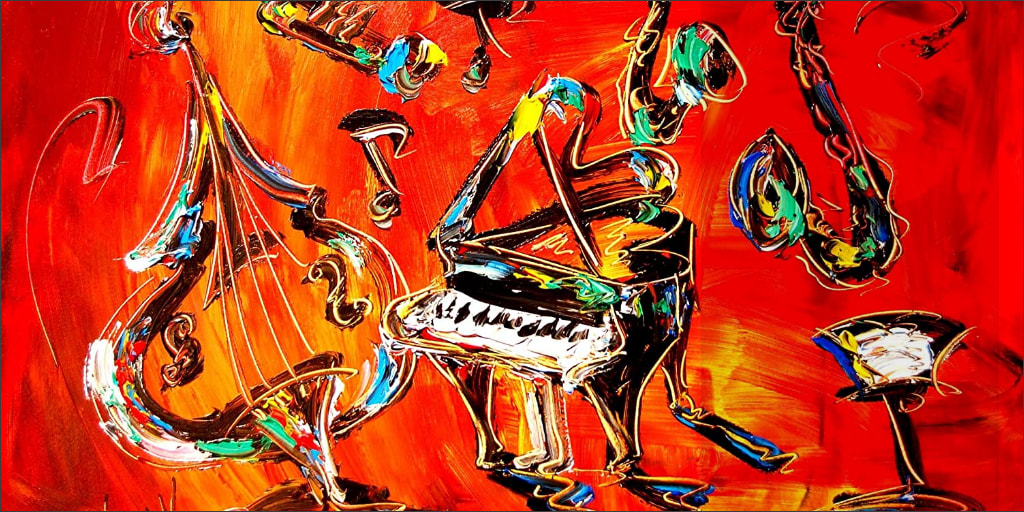Jazz contextualizes our, being that of black people, struggles and aspirations for selfactualization while concurrently itself undergoing similar transformative developments. It is not unlike German philosopher Immanuel Kant’s concept of das Ding an sich or in laymen’s terms a thing-in-itself in which objects exist, as it were, as they are; independently from observation and the experiential. Better yet stated, Jazz becoming almost an entity unto itself; a living being whose experiences mirror that of its creator. The inhumanity of slavery sung through “slave songs”; “Negro spirituals” that spoke on the horrors of the “peculiar institution”. These gave way to the blues; in much the same way bondage was supplanted by servitude, involuntary in all but the name. If “Negro spirituals” gave testimony of what happened to blacks in the past, then the blues gave account of what it felt like. This sentiment passed through the “watershed” period of the establishment of de jure segregation well into the twentieth century as two different Americas emerged; divided by the color line. It is in blues that gives what could be called and considered American music its “distinctive character.” - James Weldon Johnson. Because only in America could the subjugation of one people, the almost annihilation of another by Europeans and their descendants be considered an acceptable course of action by so many even as it were juxtapositional to the so-called “founding principles of this great nation.” The rest of the onlookers staring obliviously at the atrocities. As influential author Ralph Waldo Ellison once remarked, “I am invisible, understand, simply because people refuse to see me. Like the bodiless heads you see sometimes in circus sideshows, it is as though I have been surrounded by mirrors of hard, distorting glass. When they approach me they see only my surroundings, themselves, or figments of their imagination, indeed, everything and anything except me.” If blacks would not be seen, then the blues at least made sure we were heard. The blues, retained many of the aspects of its African roots, while adding cadence, stylized lyrics, particular instrumentation, and structure. Black folk music that detailed heartbreak and hardship, but also told of self-determination and overcoming adversity. This genre of music, whose beginnings were in the Deep South, flourished in the segregated United States; not in spite of but partial because of it.
Isolated Black America was by the law and volition, forced to be independent and self-sufficient; an all encompassing black community which was the antithesis of what was originally planned and designed by those powers that be and that which did not go unnoticed. Eventually, it was their prosperity in the face of overwhelming odds and hatred that would lead to the destruction of several black communities and the marginalization of the others; both literal and figuratively. Two disturbing trends emerged during the first half of the twentieth century as it would relate not only to the blues but black art as a whole : First, the consumption of that same art primarily by those other than people of color. Second, the seemingly inevitable appropriation of that art and culture by the same said audience. A trend that, unfortunately and most unabashedly so, continues to the current day. And so this is the backdrop from which Jazz appears. A reflection of the people who gave birth to it. The artist and the art form bore from the same history that turned tragic, share in the sorrowful todays; however, will know a common denominator of a great destiny and a brighter tomorrow. “For the jazz is an art of individual assertion within and against the group. Each true jazz moment…springs from a contest in which the artist challenges all the rest; each solo flight, or improvisation, represents (like the canvasses of a painter) a definition of his [sic] identity: as individual, a member of the collectively and as a link in the chain of tradition. Thus because jazz finds its very life in improvisation upon traditional materials, the jazz man must lose his identity even as he finds it.” -Ralph Waldo Ellison
0 Comments
Leave a Reply. |
Archives
September 2024
Categories |










 RSS Feed
RSS Feed

